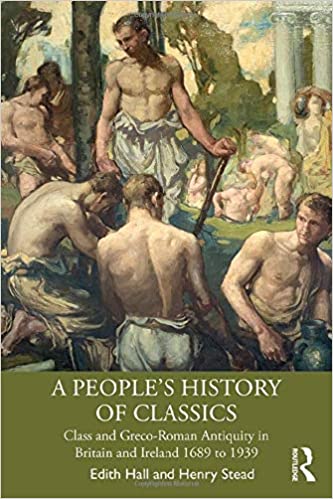When I say I study classics, or teach classics, or enjoy classics, I am met with a range of responses. Usually, I’m asked, “what’s classics?” Then when I answer, there’s the blankness in the eyes of my interrogator as they realise what a terrible question they’ve asked but it’s too late, and I’ve already launched into an enthusiastic monologue about the wonders of the ancient world. Sometimes I’m asked what I mean by classics. “Is that music?” “Is that books?” Surely there should be a more self-explanatory title for our subject? And I call it our subject because I am writing to those who share my interest. I have so often had these or similar responses from far too many people, but I haven’t until now explored why we call the subject classics. How did classics acquire its name?
Etymology, or the origin and history of words, forms a large part of learning an ancient language. We often discuss where words have come from and how we can identify modern English words in the ancient Greek vocabulary that we are learning. The name of our subject has an interesting and curious etymology.
Professor Edith Hall guested on BBC Radio 4’s Start the Week on Monday 25th May 2020 when she discussed her new book, published earlier this year and written with Dr Henry Stead “A People’s History of Classics: Class and Greco-Roman Antiquity in Britain and Ireland 1689 to 1939”. Prof Hall explained that the subject is (bizarrely) named after an ancient Roman war trumpet called a classicum. A group of people summoned together by a trumpet for any reason was known as a classis.
In early Rome, one of the legendary kings, Servius Tullius, held a census to assess, for military planning, the wealth of the people. The people were summoned according to their wealth, and this is the origin of the word ‘class’ with which we are familiar today. In the census, those with the most money and property were known as the classici, in other words, the best men were ‘classics’ and by the 2nd century AD, the best authors were also known as classici.

By the early 18th century, the Classics to refer to the corpus of Greek and Latin literature. In these times, education was only available for the very wealthy, who were taught by private tutors, or, for the less wealthy, at private school. The curriculum consisted of one subject: classics, or ‘the best of the best’, in other words, Greek and Latin literature, which had to be studied not in English translation but in the original Greek and Latin.
So Classics is a word which historically embodies elitism. But it isn’t like that at all. A more suitable name for the subject might be “the study of the ancient Mediterranean”. The ancient world is remote from us in the 21st century, and as such is mysterious and exotic.
And I would argue that it appeals to everyone and doesn’t have to be a subject only learned at private school. If only the subject was made available more widely, I guarantee it would be incredibly popular. Young people love it! How do I know? Well, a few years ago I organised an after-school club about Greek myths. It was offered to 9-11 year olds and was oversubscribed! They especially loved the gruesome myths such as Odysseus and the Cyclops, and they were keen to tell me what they’d read themselves and which was their favourite. It was wonderful to see them so engaged. And they were really excited to learn how to write their names in Greek!
So Classics is an umbrella term used to describe the study of the ancient Greeks and Romans: their art, the archaeology, and their literature which includes history, philosophy, poetry, drama, biography, scientific writings. And most importantly (to me at least) the study of the languages: Latin and Greek.
Our subject isn’t boring, nor is it dull. There are so many exciting stories to read, either in the original Greek or Latin, or in English translation. And the languages themselves? Well, your brain is in for a workout, but I adore the puzzles that the languages present, and as I’m always saying, there’s nothing quite like translating a line from Homer and connecting with the ancient bard!

